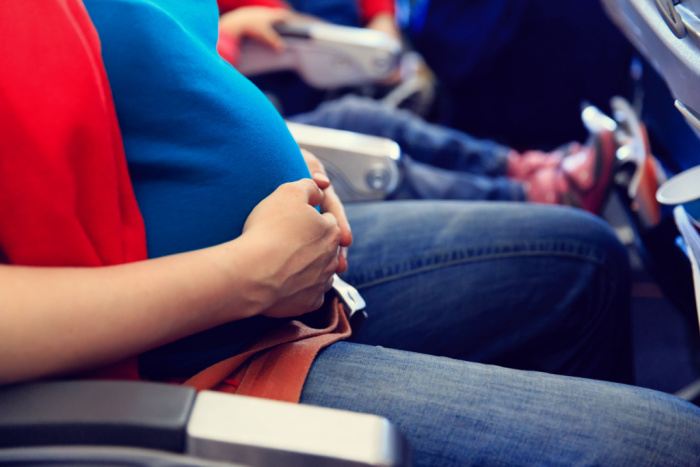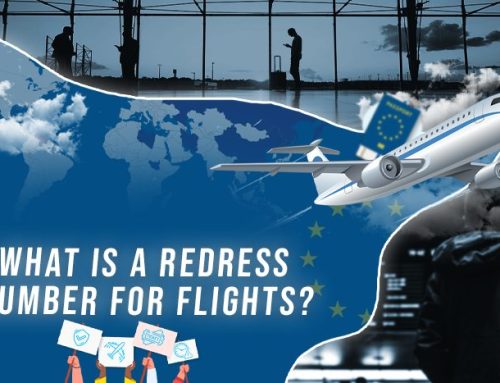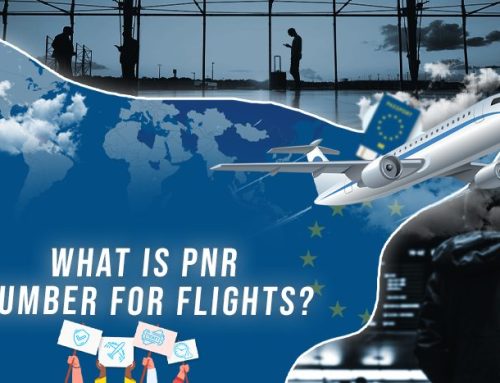Flying while pregnant is a personal choice, but there are some risks associated with it. As a result, airlines can refuse service to pregnant women; however, it is more the exception than the rule, especially if you’re early on in your pregnancy.
Key Takeaways
- Flying while pregnant is generally safe, but pregnant women should take precautions and check with their doctor before flying.
- Most airlines will allow pregnant women to travel freely until 36 weeks, though there may be restrictions for long-haul and international flights or for women pregnant with multiples.
- Pregnant women should wear compression socks, drink extra fluids, and move around during flights to promote circulation and prevent blood clots.
- Pregnant women should not fly if they have pregnancy complications or pre-existing medical conditions, such as preeclampsia or high blood pressure.
- Airlines have the right to refuse service to pregnant women, but they must comply with anti-discrimination laws and regulations. Pregnant women can carry a medical waiver letter from their doctor to lend credibility and ease any concerns from the airline.
How To Fly Safely While Pregnant?
There’s currently no evidence that proves it’s unsafe to fly while pregnant, but that doesn’t mean you shouldn’t take precautions! After all, no one wants to deliver a baby mid-flight, so it’s best to err on the side of caution.
If you have a healthy pregnancy, you can typically fly without restriction in the United States until about 36 weeks, though you’ll want to check in with your doctor to confirm that it’s safe to do so. Long-haul and international flights may be restricted as soon as 28 weeks because they can aggravate circulation issues even when not pregnant.
You may want to wear compression socks while in flight. This can help prevent blood clots, promote blood circulation, and reduce swelling in your legs. Additionally, you should get up and move at least once an hour to promote circulation. Drink extra fluids while in flight and wear loose clothing to prevent bloating and other side effects from the pressurized air in the plane.
Check with the airline to see if they have any restrictions about flying while pregnant. While they may not legally be able to ask you how pregnant you are, most airlines will try to identify how far along you are so they aren’t liable for any medical issues that could occur.
When Not To Fly?
If you are more than 36 weeks pregnant, it is not recommended to fly, though some countries and airlines have different restrictions. Additionally, if you have any pregnancy complications, you should not fly and consider alternative methods of transport where available. These complications and pre-existing conditions include:
- Preeclampsia
- Preterm Labor
- Premature rupture of membranes
- Blood clots
- High blood pressure
- Breathing issues, like asthma
It’s always a good idea to check with your doctor before flying to ensure that it’s safe. If you are far enough along, some airlines may require you to provide a doctor’s note, especially if you’re in the last month of your pregnancy. When in doubt, you can always call their airline to check in on their policies.
Medical Waiver

Sometimes the airline will require a doctor’s note before they will let you fly, regardless of how far along you are. If this is the case, you should request a document that includes how far along you are, your estimated due date, whether the pregnancy is single or double, if there are any complications, and anything else that may apply. Additionally, they should attest that you’re in good health and fit to travel.
To lend additional credibility, it should be on letterhead, signed by a doctor, nurse, or midwife, and dated no later than 72 hours before your departure date. A medical waiver is optional, but if you think you’ll have issues, it can’t hurt to carry with you as you travel.
So, Can Airlines Refuse Pregnant Women?
Airlines have the right to refuse service to any passengers, including pregnant women. Most airlines will allow women to travel freely until 36 weeks without question, though if you’re pregnant with multiples, you may be grounded at 32 weeks.
If the airline does not require a medical waiver letter, then it can be difficult for them to determine just how far along you are. Regardless, it’s a great idea to connect with a doctor prior to flying to ensure it’s safe for both you and your baby.
Frequently Asked Questions
-
Can airlines refuse service to pregnant women?
Yes, airlines have the right to refuse service to any passenger, including pregnant women. However, they must comply with anti-discrimination laws and regulations.
-
Is it safe to fly while pregnant?
Generally, it is safe to fly while pregnant, but pregnant women should take precautions and check with their doctor before flying.
-
What precautions should pregnant women take during flights?
Pregnant women should wear compression socks, drink extra fluids, and move around during flights to promote circulation and prevent blood clots.
-
When is it not recommended for pregnant women to fly?
Pregnant women who are more than 36 weeks pregnant or have pregnancy complications or pre-existing medical conditions, such as preeclampsia or high blood pressure, should not fly.
-
Do airlines have any restrictions on pregnant passengers?
Most airlines will allow pregnant women to travel freely until 36 weeks, though there may be restrictions for long-haul and international flights or for women pregnant with multiples. Some airlines may also require a medical waiver letter from a doctor.







